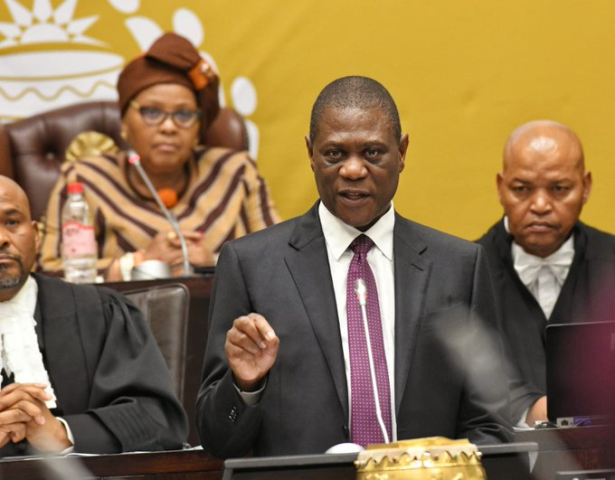South Africa’s G20 Presidency Champions African Priorities in Global Governance
Deputy President Mashatile began by emphasizing that South Africa’s G20 Presidency is more than symbolic — it is a platform for concrete action to promote African interests.

- Country:
- South Africa
South Africa’s historic leadership of the Group of 20 (G20) marks a transformative chapter for African representation in global economic governance, according to Deputy President Paul Mashatile. Speaking at the Think 20 (T20) Africa High-Level Policy Dialogue held in Pretoria, Mashatile highlighted Africa’s strategic intent to influence global frameworks, address systemic challenges, and reposition the continent as an active shaper of international policies.
Strengthening Africa’s Voice on the Global Stage
Deputy President Mashatile began by emphasizing that South Africa’s G20 Presidency is more than symbolic — it is a platform for concrete action to promote African interests. He underscored the significance of the African Union’s recent elevation to permanent membership in the G20, describing it as a “transformational moment in global governance.” This new status ensures that African perspectives are consistently represented in one of the world’s most influential economic decision-making bodies.
Mashatile pointed out that Africa’s inclusion is not simply a moral imperative but a practical necessity. The continent’s population is expected to double by 2050, offering a youthful and dynamic workforce that, if properly harnessed, could become a major driver of global growth.
T20 Dialogue: Confronting Challenges and Unlocking Opportunities
The T20 — a vital engagement group within the G20 — consolidates research-based policy recommendations to inform leaders' decisions. At the Dialogue, key themes included strategies to leverage Africa’s young population, enhance regional integration through the African Continental Free Trade Area (AfCFTA), and address persistent issues such as youth unemployment, infrastructure gaps, and economic marginalisation.
Mashatile stressed the importance of Africa taking charge of its development narrative. "Africa is ours, and we must create the Africa we want," he declared. He advocated for a critical evaluation of current interventions and called for more tailored approaches that align with Africa’s unique needs and aspirations.
Embracing Digitalisation and Technological Innovation
In his address, Mashatile highlighted emerging technologies — including digitalisation, artificial intelligence, and advanced manufacturing — as pivotal tools for sustainable African development. Investing in digital infrastructure and innovation ecosystems, he argued, will enable African economies to leapfrog traditional barriers to development and drive inclusive growth.
He called for greater public-private collaboration to foster innovation, create jobs for the continent’s burgeoning youth population, and enhance Africa’s competitiveness in the global economy.
Advancing a Just Energy Transition and Debt Sustainability
South Africa’s G20 Presidency, under the banner of “Solidarity, Equality, and Sustainability,” prioritizes pressing issues such as mobilising finance for a Just Energy Transition. Mashatile emphasized that for Africa, the energy transition must not come at the cost of development. Instead, he advocated for solutions that balance environmental goals with the need for economic growth and poverty eradication.
Debt sustainability for developing countries was another major focus. Mashatile warned that rising debt burdens, exacerbated by global economic instability and climate change impacts, threaten to reverse hard-won development gains. He called for more responsible lending practices, fair debt restructuring mechanisms, and new financial instruments that support sustainable development goals.
Defending Multilateralism Amid Rising Global Tensions
The Deputy President expressed deep concern over the growing threats to multilateralism, citing increasing protectionism, unilateralism, and geopolitical tensions. He stressed that a "fair, transparent, equitable, and inclusive international order" is crucial for maintaining economic stability and fostering sustained growth, especially for vulnerable economies.
Mashatile warned that unchecked trade tensions could worsen the cost-of-living crises across Africa by increasing the prices of manufactured goods, thereby further slowing economic growth. He urged African nations to work collectively to strengthen their internal capacities and reduce dependency on external actors.
A Vision for a More Equitable Global Order
Mashatile outlined a vision for a reformed global governance architecture — one grounded in equity, cooperation, and shared responsibility. He asserted that while the G20 cannot replace existing international institutions, it must play a complementary role by fast-tracking the implementation of globally agreed commitments, particularly those concerning sustainable development, climate action, and equitable trade.
The Deputy President pledged that South Africa’s leadership of the G20 would be firmly accountable to the African continent and its people. "Strengthening African agency within this framework not only empowers African States but also increases the credibility and efficacy of global governance," he said.
In closing, Mashatile called on African leaders, institutions, and civil society to seize this moment of opportunity. By acting decisively, strengthening collaboration, and investing in the continent’s greatest asset — its people — Africa can redefine its role in the global economy and build a prosperous, sustainable future.










